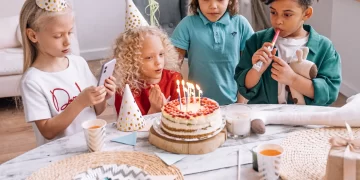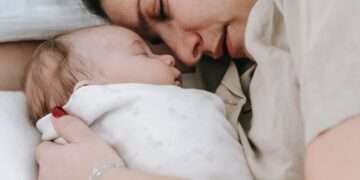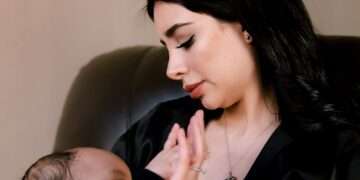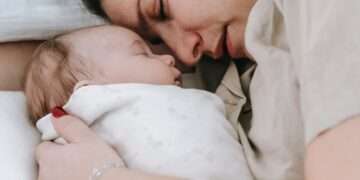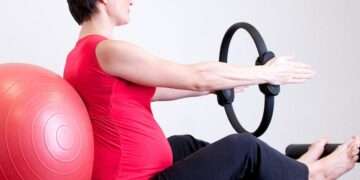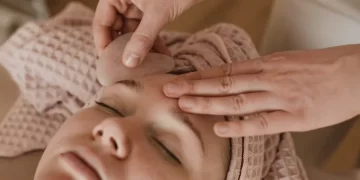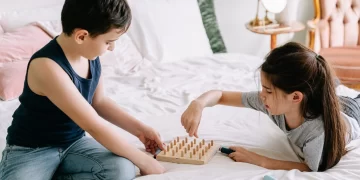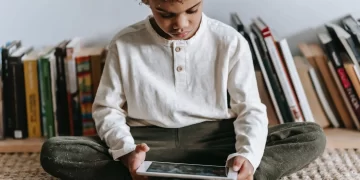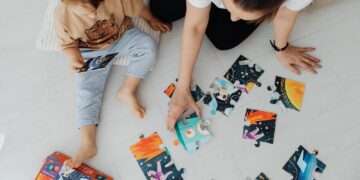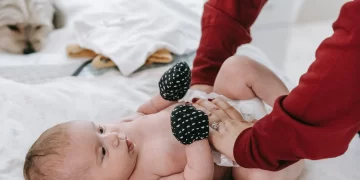
Promoting Your Baby’s Cognitive Development: A Guide for Parents
The activities that follow will boost your baby’s cognitive development skills while also helping you and your baby bond and relax. So, let’s dive a little deeper and discover more about cognitive development. The first years of a baby’s life are a time of astonishing growth and development. As parents, you play a crucial role in nurturing their cognitive abilities. Cognitive development involves processes like problem-solving, memory, language, and perception, and it lays the foundation for a child’s future learning. In this guide, we’ll explore effective ways to stimulate your baby’s cognitive development.
Baby cognitive development is seen when they grow curious and reach out with their hands to touch and feel things. In the first year, babies also start understanding language and develop bonds of love and trust. The way parents speak, play, cuddle or interact with their children also helps in the cognitive development of their children
Effective ways to promote cognitive development:-
Stimulating your baby’s cognitive development is crucial for their overall growth and learning. Here are some effective ways to promote cognitive development in your baby:
- Talk and Engage: From the moment your baby is born, talk to them frequently. Describe what you’re doing, and the surroundings, and use a soothing, melodic tone. Engaging in conversation, even one-sided, helps your baby become familiar with language.
- Read Aloud: Reading to your baby exposes them to language, rhythm, and storytelling. Choose age-appropriate books with colorful pictures and simple text. This fosters a love for reading and language development.
- Provide Visual Stimulation: High-contrast patterns and colorful toys can captivate your baby’s attention. Mobiles, soft books, and toys with different textures and shapes can help stimulate their visual and tactile senses.
- Sing and Play Music: Music has a profound impact on cognitive development. Sing lullabies, nursery rhymes, and songs. Use musical toys and instruments to encourage rhythm and sound exploration.
- Tummy Time: Place your baby on their tummy for short periods while they’re awake and supervised. This helps develop neck and upper body strength, which is essential for later cognitive development and motor skills.
- Engage in Peekaboo and Hide-and-Seek: Games like Peekaboo help your baby understand the concept of object permanence, which is an important cognitive milestone. They learn that even if something is hidden, it still exists.
- Encourage Exploration: Allow your baby to explore their surroundings. Provide safe objects to touch, hold, and examine. This fosters curiosity and fine motor skills development.
- Practice Baby Sign Language: Consider teaching your baby simple sign language, such as “more,” “milk,” or “sleep.” This can help them communicate their needs before they can speak.
- Rotate Toys: Babies can become easily bored with the same toys. Introduce new toys and rotate them to maintain their interest and stimulate different aspects of cognitive development.
- Offer Sensory Experiences: Activities that engage multiple senses, like messy play with safe materials (e.g., pudding, water, or textured fabrics), can be both fun and educational.
- Spend Quality Time: Bonding and interaction with parents and caregivers are crucial. Your baby learns through their interactions with you, so engage in face-to-face play, respond to their cues, and be attentive to their needs.
- Encourage Problem-Solving: As your baby grows, introduce toys and puzzles that require problem-solving skills. Simple shape sorters and stackable toys can promote logical thinking and coordination.
- Outdoor Exploration: Take your baby for short strolls in the fresh air. The sights, sounds, and sensations of nature can be stimulating and educational.
- Limit Screen Time: For children under two years old, it’s advisable to limit exposure to screens. Real-world interactions and activities are more beneficial for cognitive development.
Baby Cognitive Development Activities: 0-3 Months
In the first year after birth, an infant’s brain will undergo steady and rapid development. The pace of development is the fastest in the first year, gradually slowing down beyond the first few years. Hence, in the first few years, the involvement of parents and caregivers can enhance the development of cognitive skills in babies. The way parents sing, speak, cuddle, play, make eye contact, or interact with the infant, can help them develop these cognitive skills faster.
By three months of age, your baby should be able to move their eyes along with a moving object, be able to respond to sound, cry when they are hungry, and make a fuss when they are bored. By three months, infants recognize the difference between their mother’s breasts and a bottle. As a parent here are a few things that you can do to improve the cognitive skills of your infant.
- Talk to Your Baby: This is the simplest thing to do that will enhance their development. They will not understand anything that you say but they will observe you. They will notice how you speak, how you take a pause, and how you smile or frown while talking. This will teach them about speaking. Talk to your infant while bathing them, feeding them, and even putting them to sleep. Remember, babies recognize their mother’s voice from the womb. When you talk to them, they feel safe as they know your voice. Notice how intently your baby listens to you. In no time, you will observe that your baby is trying to respond to your words by twitching, shaking their hands, or smiling. Regularly talking to them will improve their language skills.
- Sing to Bour Baby: You may not be a good singer but your baby will never judge you for this. They will love it when you sing to them. Singing soothes your baby. They fall asleep faster if you sing. Having a good sleep is extremely important for brain development. Music plays an important role in brain functioning. Music boosts the infant’s moods and makes them calmer. Songs will also teach them about rhymes and lyrics.
- Use Rattle Toys: Rattles are one of the first toys of your infant. Hang a rattle over their crib or bassinet. Your infant will get attracted to the noise of the rattle. Gradually, your infant will try to grab the rattle. This will help your infant develop grasping, holding, and shaking objects. Rattles are great toys to encourage the development of your infant’s motor skills.
Baby Cognitive Development Activities: 3-6 Months
By the time your baby turns six months of age, they are on a journey of self-discovery. They can transfer objects from one hand to the other. They learn to grab objects. By this age, they are also able to express happiness and sadness. This is the age when you should introduce stimulating toys to them.
- Textured Toys: This is the age when you can introduce toys or books that have different textures. You can give them woolen balls, plastic cups, velvet soft toys, and wooden toys to help them understand various textures.
- Read Aloud: Reading is a skill that will help your baby’s cognitive development. It is never too early to start reading to them. Use a book that has various textures and sounds. Musical books are a good way to start with. Read aloud to your baby. Make animal noises while reading to them. Reading to your baby will help them recognize different noises, sounds, and colors. Also, remember to allow your baby to turn the pages as you read aloud to them.
- Touch and Sound Toys: Toys like kick-and-play baby gym mats with a musical piano keyboard encourage your child to reach out to the hanging toys and kick the keyboard to make sounds. This not only keeps the child engaged but also supports their cognitive development.
Cognitive Development Activities for Baby: 6-12 Months
Before your baby’s first birthday, they should be able to transfer objects from one hand to the other, play hide and seek, play with building blocks, look for hidden objects, and confidently turn the pages of a book. At this age, you should allow them to play individually under your supervision. The more you encourage them to explore on their own, the better for them to develop cognitive skills. Here are some toys that can help your toddler.
- Stacking: Let them play with a stacking toy. Let your baby stack objects according to their shapes, sizes, and colors. You can even use cups and containers from your kitchen and let your baby stack them.
- Sorting and Dropping Toys: This is the time when you can introduce your baby to shapes and colors. A shape-sorting and dropping toy is a great way to let your baby practice their fine and visual motor skills.
- Hide and Seek: At this age, your baby will love to play hide and seek with you. Hide an object and let them find it. Cover your face and see the joy on their face when they remove the hands and find you.
Babies are born ready to learn.
Your baby’s senses (hearing, smell, taste, touch, and sight) begin developing in the womb. By the time they’re born, they:
- Recognize your voice and smell.
- Have a full set of taste buds.
- Turn their head when stroked on the cheek.
- Grasp your finger when placed in their palm.
What is the cognitive test for babies?
Baby Cognitive Development is an assessment instrument designed to measure motor, cognitive, language, social-emotional, and adaptive behavior development in babies and young children. It involves interaction between the child and examiner and observations in a series of tasks.
FAQs
What foods are good for babies’ brain development?
Breast milk is the perfect food for your baby and supports your baby’s physical, social, emotional, and cognitive development. Exclusive breastfeeding for the first six months is to be continued alongside the introduction of solid foods up to the age of two and beyond.
How does stimulation help a baby’s developing brain?
Activity in the brain creates tiny electrical connections called synapses. The amount of stimulation an infant receives directly affects how many synapses are formed. Repetitive and consistent stimulation strengthens these connections and makes them permanent.
What cognitive skills will a baby develop?
In the first year, babies learn to focus their vision, reach out, explore, and learn about the things that are around them. Cognitive, or brain development means the learning process of memory, language, thinking, and reasoning.
What are the signs of an intelligent baby?
It’s difficult to define and measure intelligence, and development is neither a race nor a strictly linear path. Your baby will develop at their own pace and gain a unique set of skills, knowledge, and understanding that’ll continue to evolve throughout life.
Unconditional love and strong relationships help most babies thrive, but contact your doctor for advice if your baby:
- Avoids eye contact.
- Lacks curiosity.
- Is not moving toward developmental milestones.
- Shows signs of a cognitive developmental delay.
How do rattles help in the cognitive development of babies?
Rattles are a classic baby toy and can encourage visual and soundtracking, fine motor skills, and hand-eye coordination.
Leaving a rattle close to your baby will allow them to reach out and grab it if they want, but it’s not an essential baby item. Your baby will learn far more from their interactions with you and the natural sensations of the world, so don’t worry if your baby’s not interested in their rattle.
Conclusion
Promoting your baby’s cognitive development is an ongoing process filled with love, attention, and interaction. Talk, read, sing, and play with your baby. Provide a safe and stimulating environment for exploration, and responding to their cues. By integrating these practices into your daily routine, you can help your child build a strong cognitive foundation that will serve them well in the years to come.
For Babies Playing, talking, reading, and singing with them are great ways to boost their confidence. However, do not overwhelm your child with too many activities or toys. Follow their lead and know when to give them a break. Also, if for any reason you feel that your baby’s development is delayed, it would be a good idea to discuss it with your pediatrician as soon as possible.
